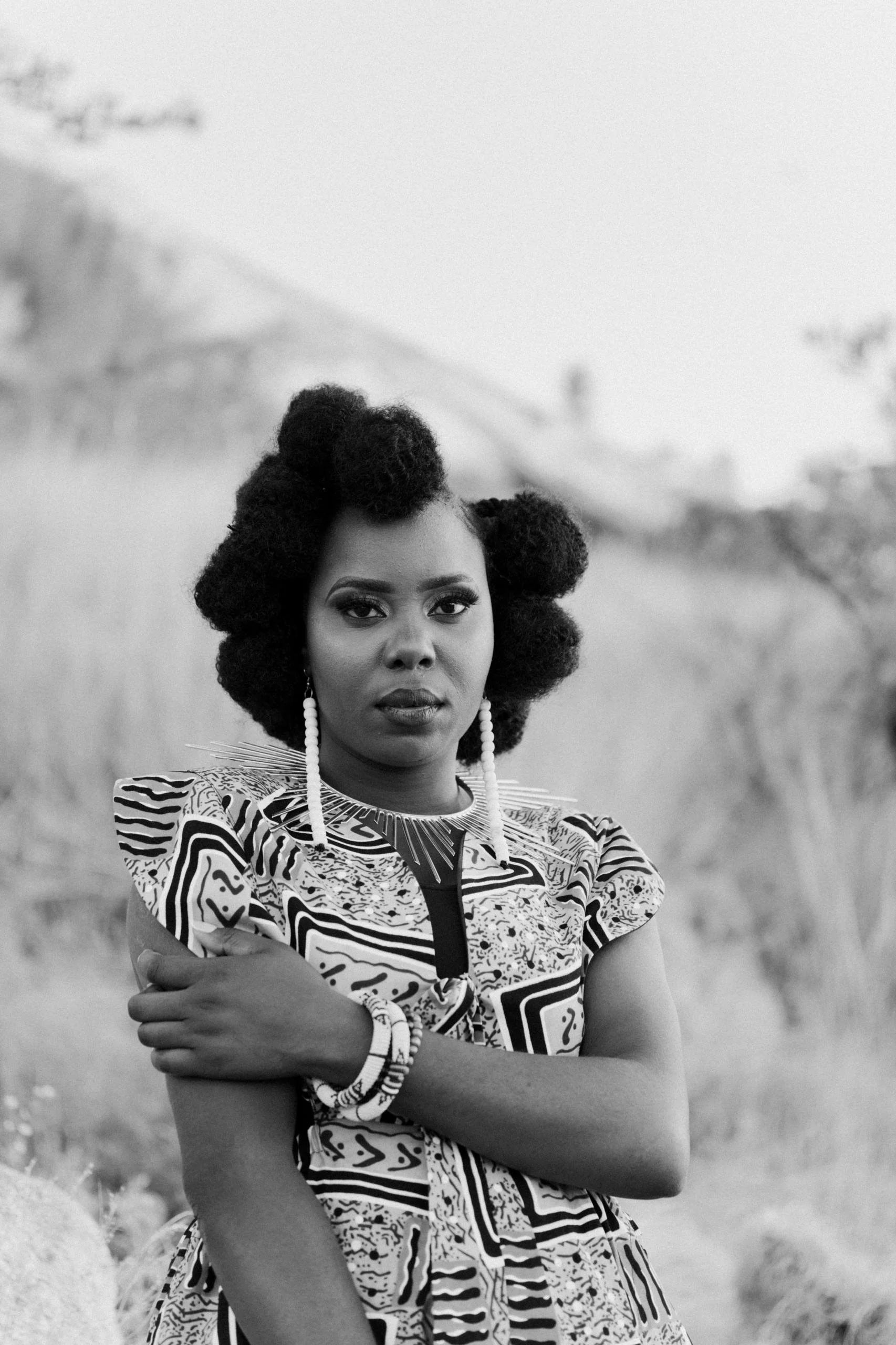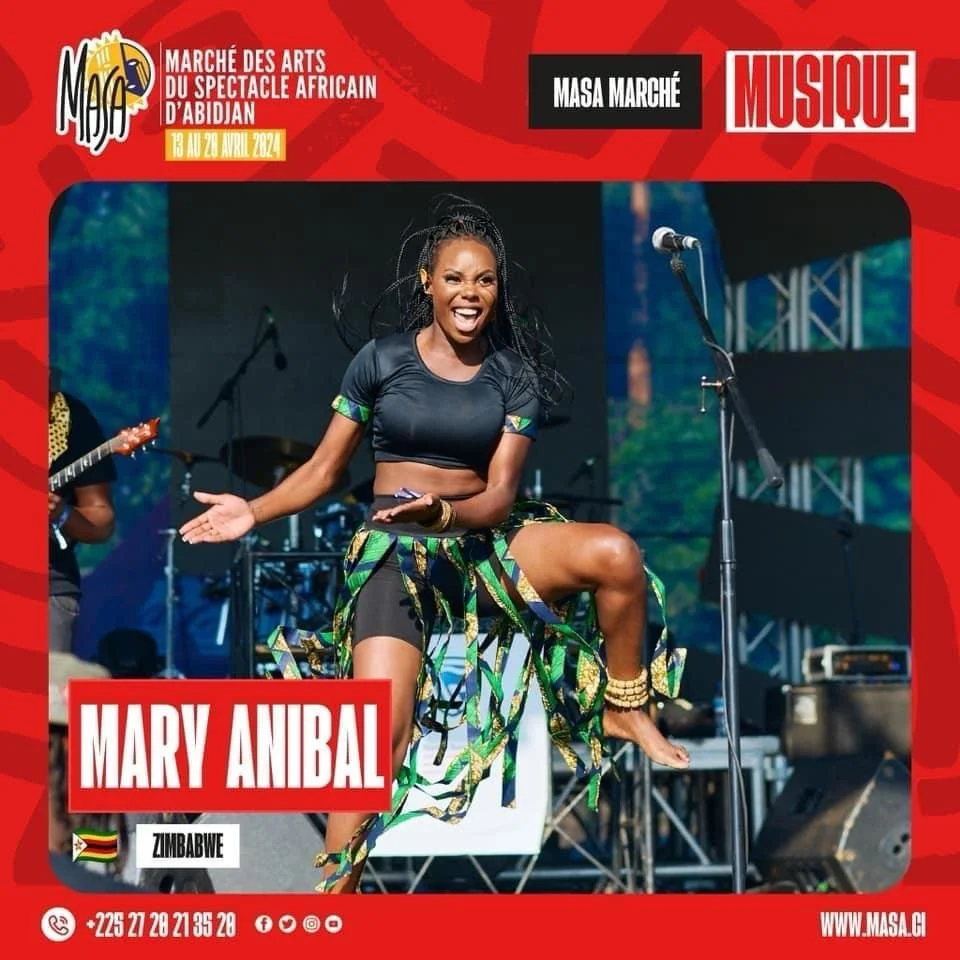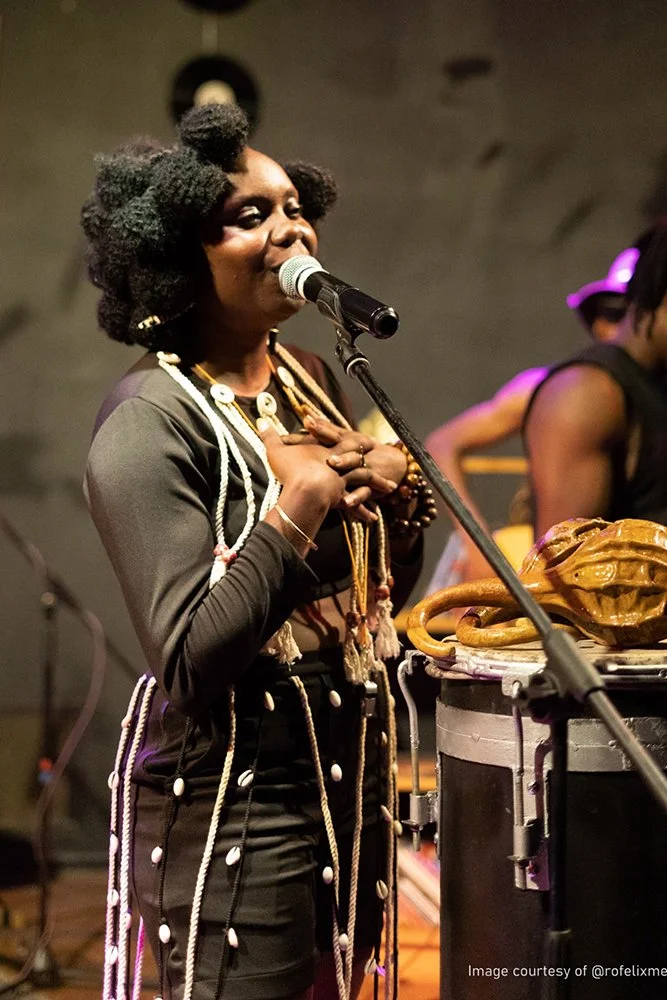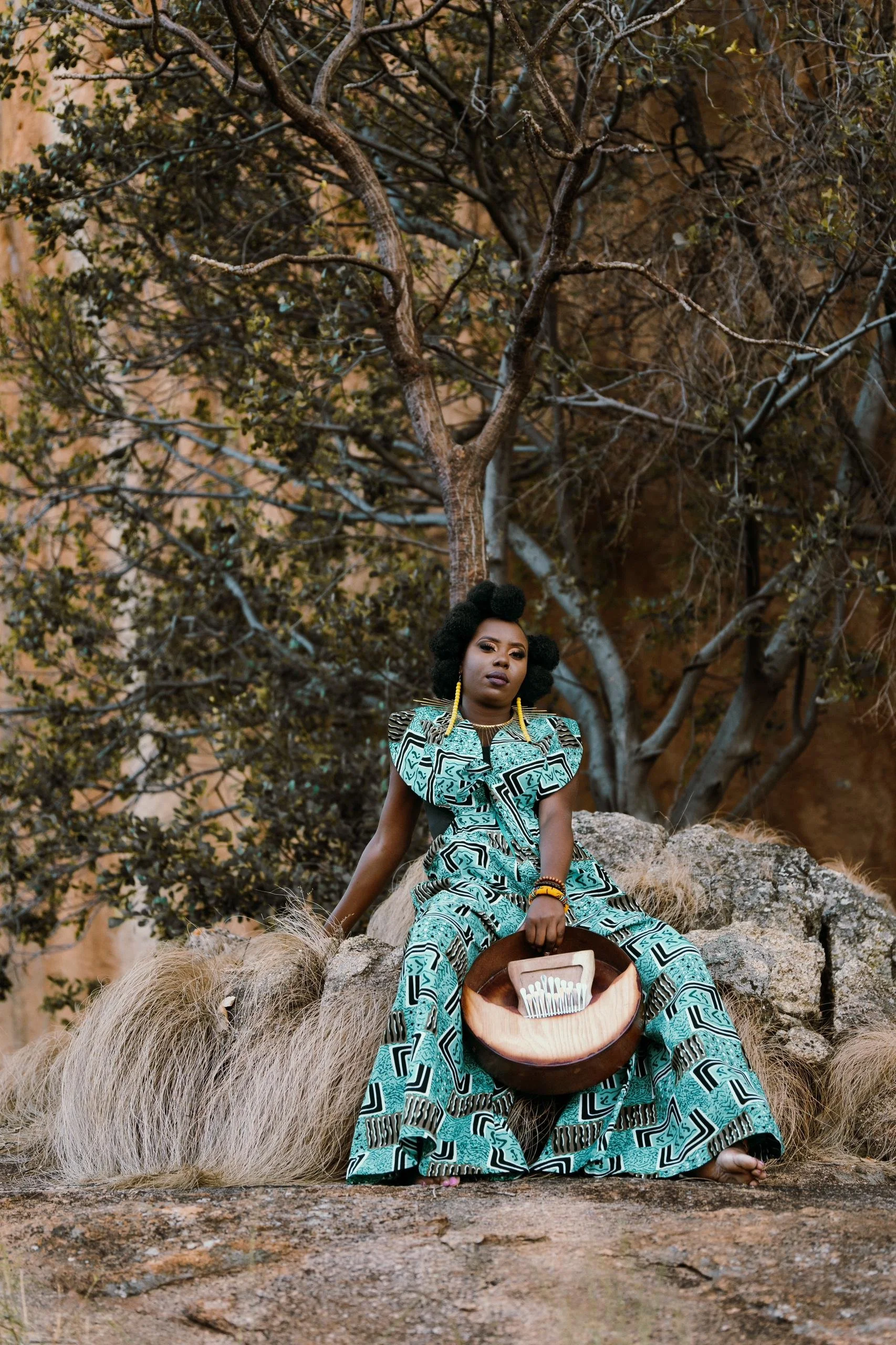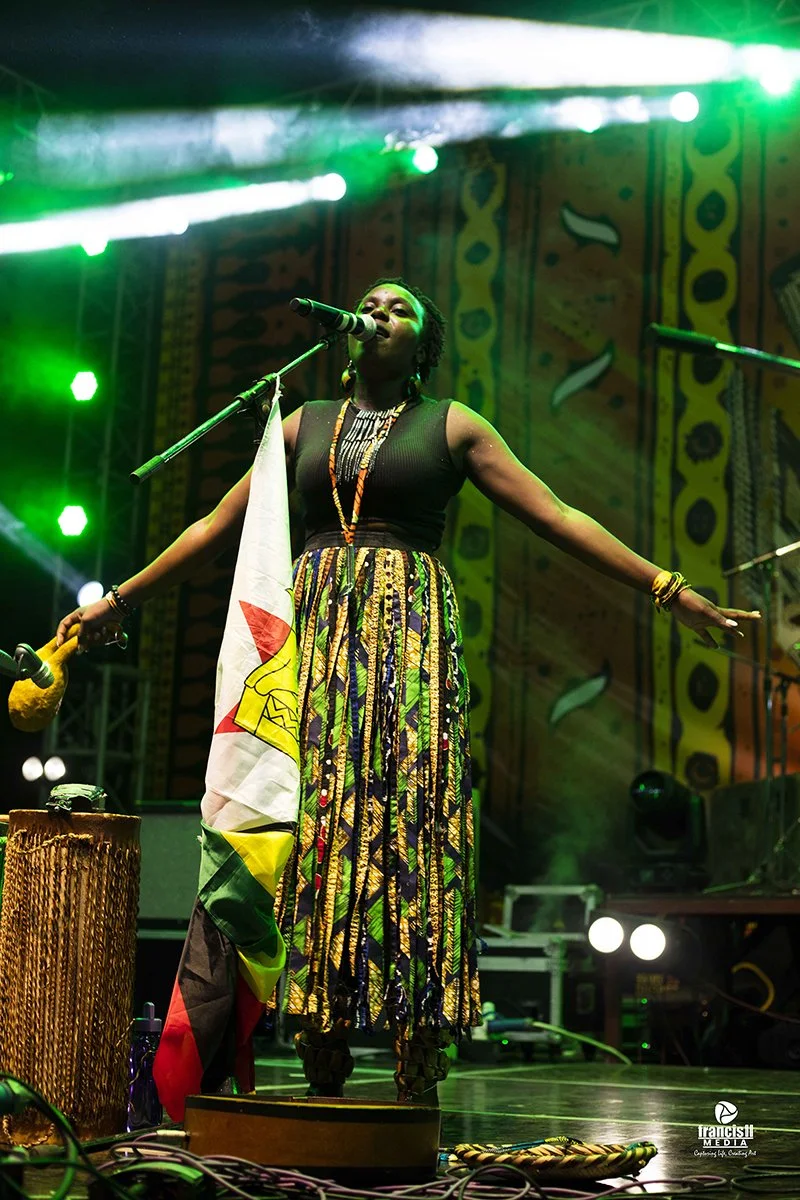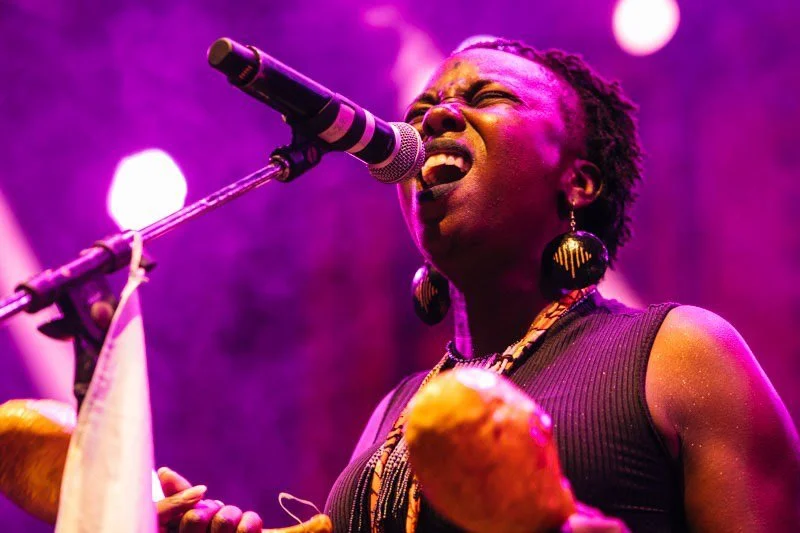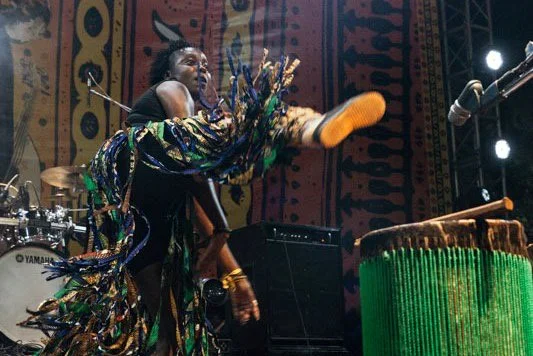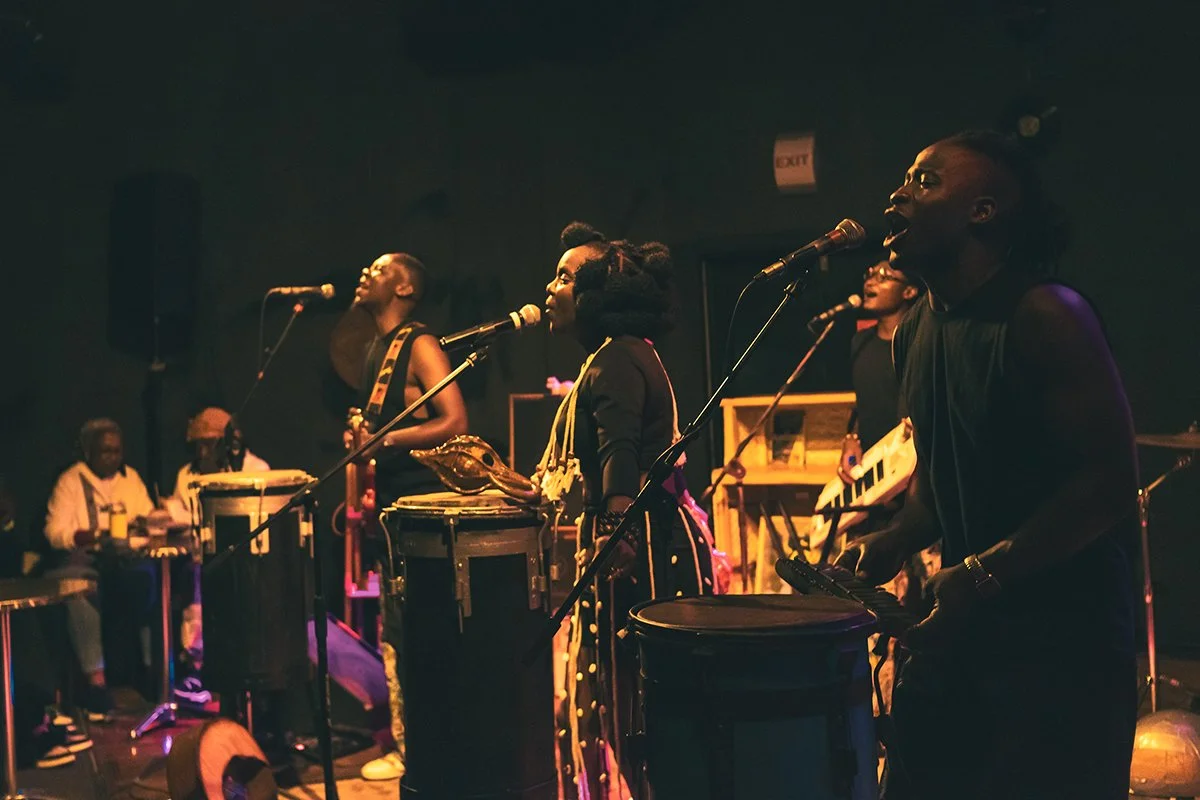Mary Anibal’s debut album ‘Maria Wenyu’ Casts a New Light on the Mbira
Mary Anibal an artist from Harare who is emerging on the global scene spoke to us about Zimbabwean music, her life, and her new album 'Maria Wenyu'. Alex Boicel recommended we contact her after he took in her performance at the MASA festival in Abidjan in April. After hearing 'Maria Wenyu' her debut album, we had to find out more about this music.
‘Simuka’ from Mary Anibal’s Maria Wenyu album
'Maria Wenyu' is a tour de force debut, a collection of 10 songs selected from years of songwriting that she released on the BridgeNorth label in September. The songs build in intensity from a foundation of Mbira melodies and Mary's powerful singing. Jah Prayzah, Trust Samende of Mokoomba and Clive Mono Mukundu lead guitarist with Oliver Mtukudzi were among the musicians who joined Mary in the studio.
Announcement for MASA 2024 Abidjan artist Mary Anibal
Because the structure of the music is built around the mbira, the most traditional of instruments, it led to a tag of Afro-Fusion, but to label the music doesn't do it justice. In fact, Mary had never seen nor heard a mbira before reaching high school, long after she began singing in the church, at home with her sisters and writing her own songs. It's true, while the songs are not born from a single tradition, each demand to be heard each on their own and in no way feel fused, but rather timeless.
Mary Anibal performing at the 2024 Kwandinovba Live Sessions November 29th 2024 in Harare
The music grows from her life experiences, and lyrics keenly observe life in Zimbabwe and offers encouragement to those going through difficulties. "I write songs that address social ills for example gender based violence, child labor, mens mental health, child marriages" she says "Being the voice of the voiceless, is what makes me love singing, we are with you, we see you". Her writing takes inspiration in any number of ways, a dream, a conversation, or a random moment can be the beginning of a song.
Mary Anibal photo: Takudzwa Kaseke
Mary introduces herself in the opening track with a simple rising and falling mbira motif and a piecing scream opening into a beguiling melody, her voice soaring above.
The music moves seamlessly into 'Nditarirei' evocative of the pulsating complexity of sounds heard in nature during the night-time hours. It also builds from a mbira, but her acapella vocals are soon buried beneath a wave of crashing drums (Tafara Gumbo) and electric guitar (Clive Mono Mukundu) and Tinotenda Musariri on bass. The song also introduces complex vocal arrangements featuring her sister Martha Anibal and Daniel Chiweda. Mary describes 'Nditarirei' as "A prayer to god for divine protection, because you don't know what is going to happen in the next 5 minutes of your life". It contains these lyrics 'As I walk, watch over me, my master, and shower me with grace.'.
The sound of rain inspired 'Mvura'. A sound familiar to all, but heard fresh by the songwriter as she listened through the ears of an infant in her arms. At that moment, as she hummed the rhythm of the falling rain the baby stopped crying. It led to 'Mvura' from the album, which Mary says, with a laugh, "is a song advising a lazy person to plough their fields before the rain starts pouring, I am talking about the rain but also procrastination. Make hay before the sun goes down."
Mary Anibal performing at Sauti za Busara, Zanzibar Tanzania in 2024
'Simuka' (Rise Up) starts with a mbira melody and vocals, and proceeds forward into a rock quartet format with Trust Samende of Mokoomba on guitar complementing the melody of the mbira, Tafara Gumbo on drums and Tinotenda Musariri on bass. "I had written this song when I was 14” Mary told us, “but I didn't know what I was writing, Then during covid time I was seeing what was happening during that time, a lot of mental health issues were arising. I was trying to understand why, What was happening? Was the world coming to an end? There was a lot of domestic violence a lot of child marriages. What surprised me was men were committing suicide more, I don't know if its the same in your society, in African society, we are told men don't cry, you have to man up, men don't cry, we don't cry in public. I then rewrote the song with the lyrics addressing men, I was trying to tell the men ‘its ok to cry, its ok to open up, ok to share whatever you are going through’ RISE UP, Get up, share with someone the feelings, you are actually relieving pressure on your life, no matter how big or small the problem, talk to somebody who doesn't judge."
Mary Anibal performing at the Oliver Mtukudzi International Festival of the Arts in Harare photo parkafrikafilms
Up until the age of 14 Mary was singing gospel music at her church and with her sisters at home including Martha who does backing vocals on the album. Things changed at her high school orientation. She was introduced to the mbira by Mr. Mhlanga, who became her teacher and mentor.
Mary Anibal performing at Sauti za Busara, Zanzibar Tanzania in 2024 photo parkafrikafilms
"It was like love at first sight", she says "I was supposed to do food and nutrition as my subject. I saw Mr Mhlanga, he walked in and introduced himself and he was holding a mbira. I was like what is that?, I had never seen Mbira and never heard the sound, not seen or heard in my life, He said 'Oh Mary you are actually in the wrong class.' he started directing to food and nutrition, I said “I am in the right place”, "No he replied you are supposed to do food and nutrition", I said “I am in the right space. And I argued I will prove you wrong, I will be the best student ever, I will prove it to you, He was like OK".
Mary Anibal performing at the Oliver Mtukudzi International Festival of the Arts in Harare photo parkafrikafilms
The Anibal Sisters introduced the mbira into the gospel music she performed at her church. She and Martha even released an album ‘Simuke Upenye' (Arise and Shine) that was contentious in gospel circles because of the use of mbira.
Mary told us "Yes, the use of mbira in gospel music was indeed controversial at that time. Many people in our community associated the mbira with traditional or ancestral worship, and some saw it as incompatible with Christian values."
Mary Anibal performing at MASA 2024 in Abidjan with Tichaona Muchemwa, lead guitar and vocals; Abel Mafuleni, mbira, percussion and vocals; Exodus Chauke, keyboard and vocals; Simeon Diez (Cameroon) bass; and Malvern Cheremari, drums and vocals. Video Alex Boicel
On the album the complex vocal harmonies can be heard with her sister Martha backing.
"For my sister Martha and me, incorporating the mbira into our gospel music was not just about pushing back against conservative elements, but also about reclaiming and celebrating our cultural heritage. We believed that the mbira, as an instrument, was not inherently 'secular' or 'traditional,' but rather a powerful tool for expression and worship."
"By using the mbira in our music, we wanted to challenge the notion that indigenous traditions were inferior or less valuable than Western influences. We saw it as an opportunity to blend our cultural roots with our Christian faith, creating a unique sound that was both authentic and meaningful."
Mary Anibal performing at the 2022 Jacaranda Music Festival in Harare. photo parkafrikafilms
When COVID pandemic hit, Mary had just released her first single, Bhonzo Muderere. Derailed by the lockdown, she was able to make ends meet by doing home recording sessions and backing vocals, even selling vegetables. But she was also writing.
'Parafini', written during this time, addresses child marriage, exploitation. It was a follow up to ‘Simuka’. Mary noticed at that time, during covid, the high rate of child marriages. “In 'Parathini' I was writing as a young boy who is being forced by his guardian, his grand parent, to marry a woman they are choosing for him.” In this case the boy spoke out, espressed his anger.
On 'Ndibatsire' Mary puts herself in the shoes of a street kid, inspired by a boy who went into the streets at the age of 7. "I was explaining that not all kids go into the streets because they want to its because of the situation going on back home."
On 'Yeuka' Mary shares vocals with Jah Prayzah's distinctive voice. 'Rungano' written with Anesu-Tendesai Chikumba advises beginning on a path is difficult. It is "advising never give up, no matter what people say, it will help someone in the future, do it, regardless of what people are saying."
Mary Anibal performing at the 2024 Sauit za Busara Festival in Zanzibar, Tanzania
Today, Mary often finds herself explaining why she plays the Mbira instead of the modern westernized styles, as do most artists of her generation.
How her music is labeled doesn't seem to concern her. "Any answer may be right or wrong, i feel very connected when i do mbira music. I am trying to bridge the gap and contemporize the music. It might be the rhythm or maybe the elements of the instruments that are being used from traditional music, In Zimbabwe music, the lead guitar borrows the melodies from the Mbira rhythms, there is a lot of borrowing happening and playing to complement the traditional instrument. It also depends on how the person is feeling at that moment, but everything is complementing the traditional instrument.”
Mary has impressing international audiences as well including at the 2023 Habari Africa Festival in Toronto and 2024 Sauti Za Busara Festival in Zanzibar, Tanzania. MASA in Abidjan, Cote d’Ivoire in 2024, and the Jacaranda Music Festival, Harare in 2022 and 2024. She is looking forward to a Eurpean tour.
Mary Anibal performing at the 2024 Kwandinovba Live Sessions November 29th 2024 in Harare
